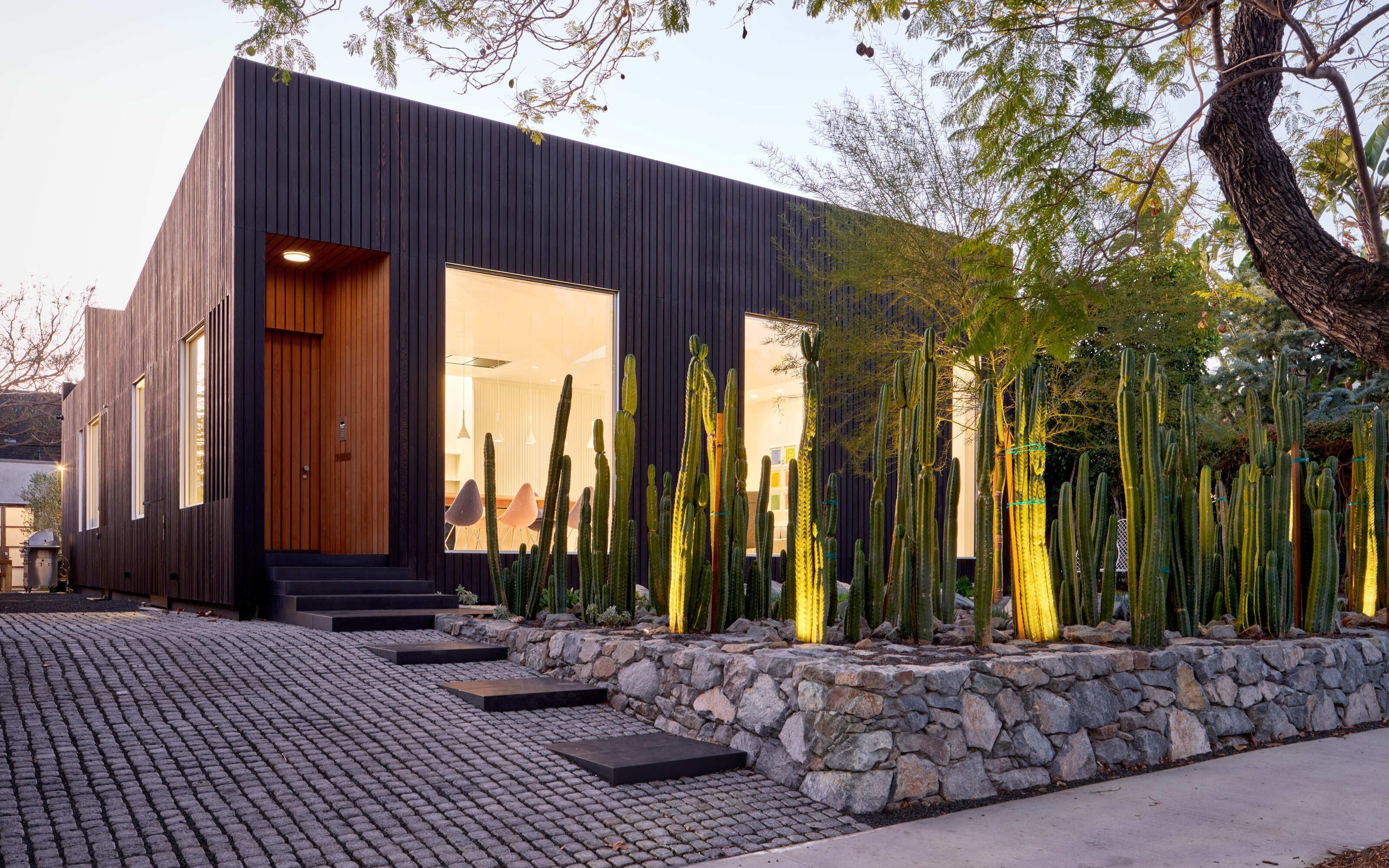
As with all spaces in the home, lighting plays an important role in your front yard design, helping to guide visitors down your garden path, illuminating the front of your home, and creating an atmospheric outdoor space. Transforming a lackluster space to an enchanting and atmospheric garden, you can give your front yard some serious curb appeal with the simple addition of lighting.
From recessed lighting dotted along your pathway to your front door, to statement porch pendants, there are so many different ways to add lighting to your front yard, helping with the overall landscaping ideas and aesthetic. Here are some of our favorites.
1. Light your porch with a statement pendant
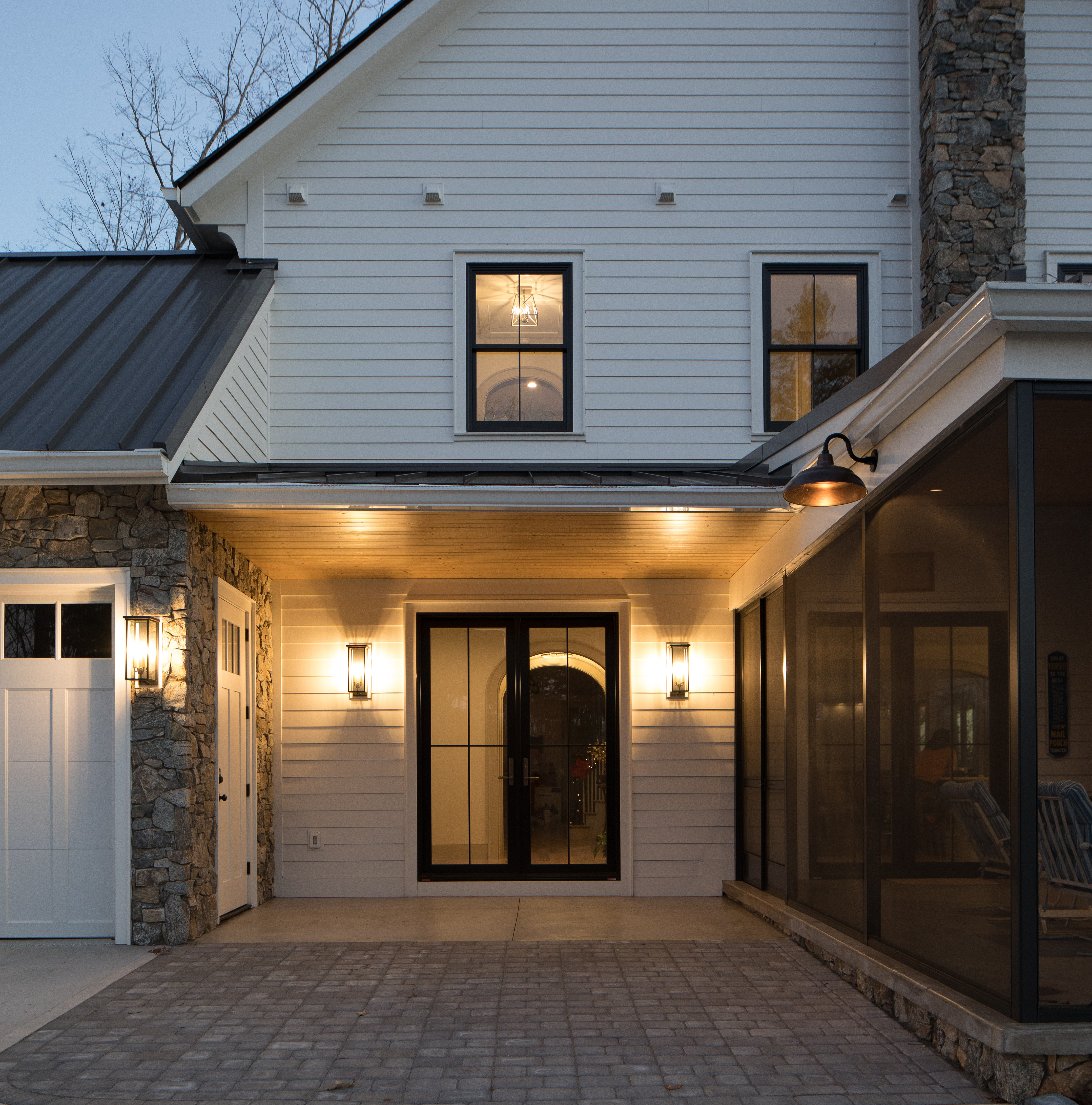
If you have a reasonably sized porch, incorporating a pendant lantern can be an excellent choice. Approach your front porch lighting ideas in the same way you would your entryway lighting. The two spaces are very similar in size, shape and function. As in your entryway lighting, a statement pendant can really elevate a modern front yard.
'Architectural lighting transforms a simple front entrance into a warm and inviting gateway,' says Amos Goldreich of Amos Goldreich Architecture. 'Lights such as pendants, when suspended above a front door create a captivating focal point, casting a warm and inviting glow that welcomes you and your family home.'
2. Uplight your sculptural plants and trees
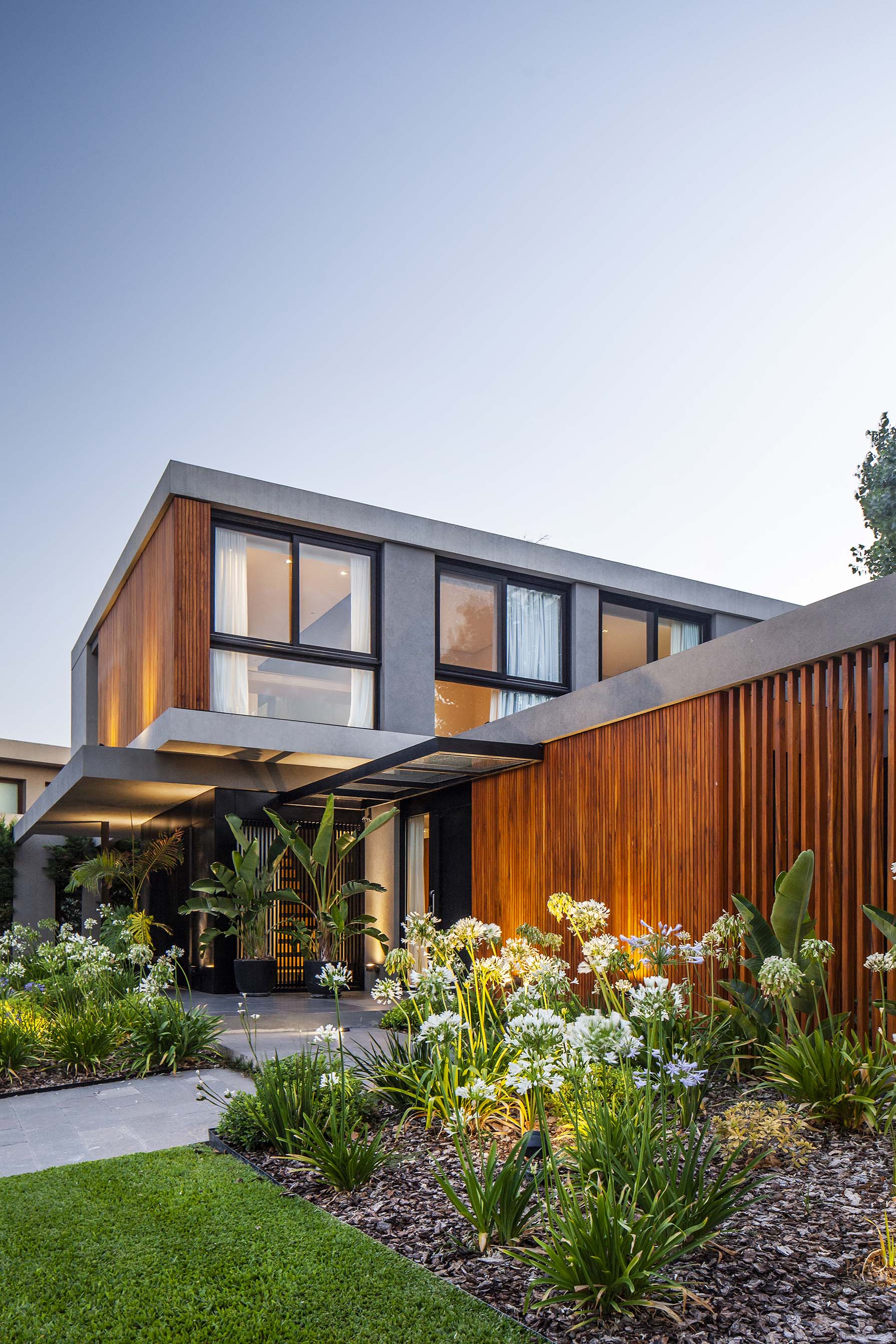
Uplight your flower garden or tropical plants with lighting fixtures that sit within the planters and shine light upwards to really emphasize the shape of the flowers. Pick sculptural plants like allium flowers that have a long stalk and large, round flower, or tulips. Don't pick a plant that has too much green foliage like hydrangeas, as your modern garden lighting may struggle to permeate through the leaves.
'After sunset, strategically placed lighting can highlight a garden's more polished or luxurious elements,' says Christopher Dameron, founder of Dameron Architecture. 'Focusing light on the most attractive features allows the rest of the garden to fall into darkness and can radically reshape the way you perceive the space.'
3. Add a stylish wall-mounted light
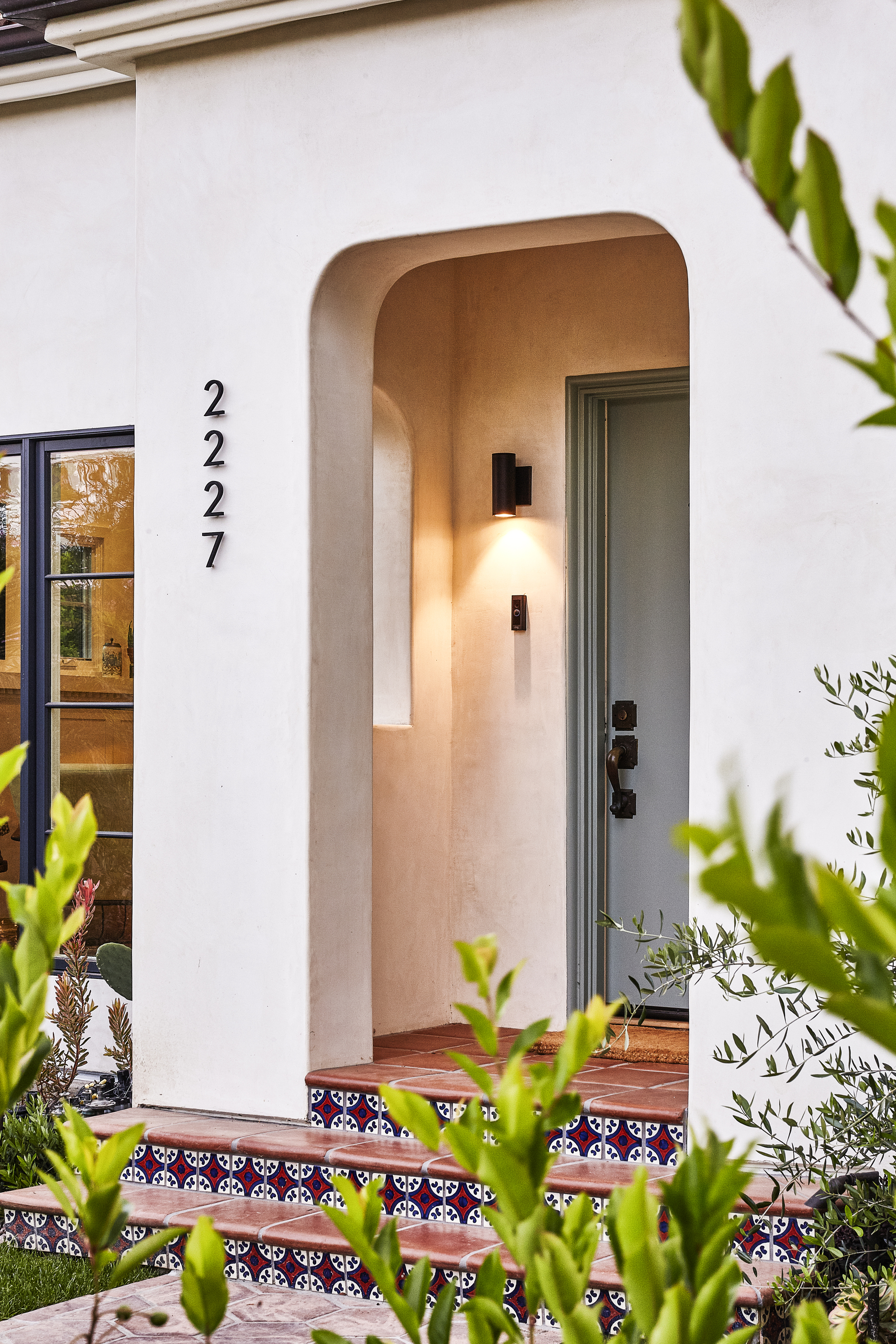
A wall-mounted light is a great look for a front porch, and can foster a welcoming glow, beckoning guests indoors. 'It can be a nice look to have a singular wall mounted light that is a mini hero to complement the door,' says Thomas Rama of Sydney-based Rama Architects. 'Ensure the light speaks to the design of the door, for example a copper tubular handle and a copper wall light with similar proportions.
'It's also important the lighting isn't blinding to the eye but rather a soft glow of the space, yet also functional that is inviting and direct to look at your keys at night,' Thomas says.
This example from Byrdesign casts a downwards pool of light onto the buzzer, complementing the rest of the front porch hardware including the door knocker and numbers.
4. Add path lighting up garden steps
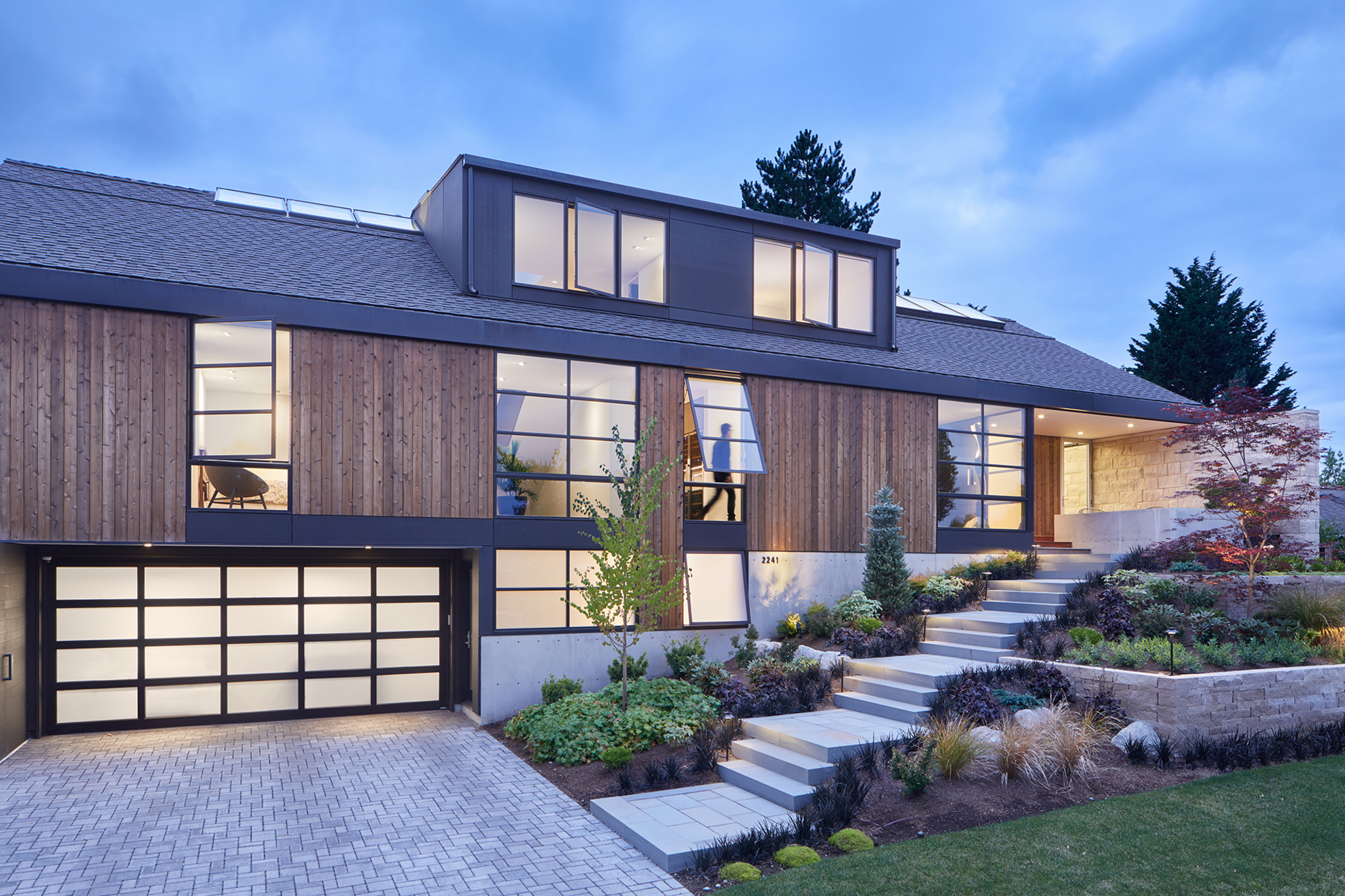
Strategically place bollard lights along a garden path or up the steps in your front yard to add some interest and modern lighting to your space. 'Floor-level lanterns positioned near the entrance add a touch of enchantment, casting soft, diffused light that guides guests with a subtle elegance,' says architect Amos Goldreich
5. Or uplight a tree
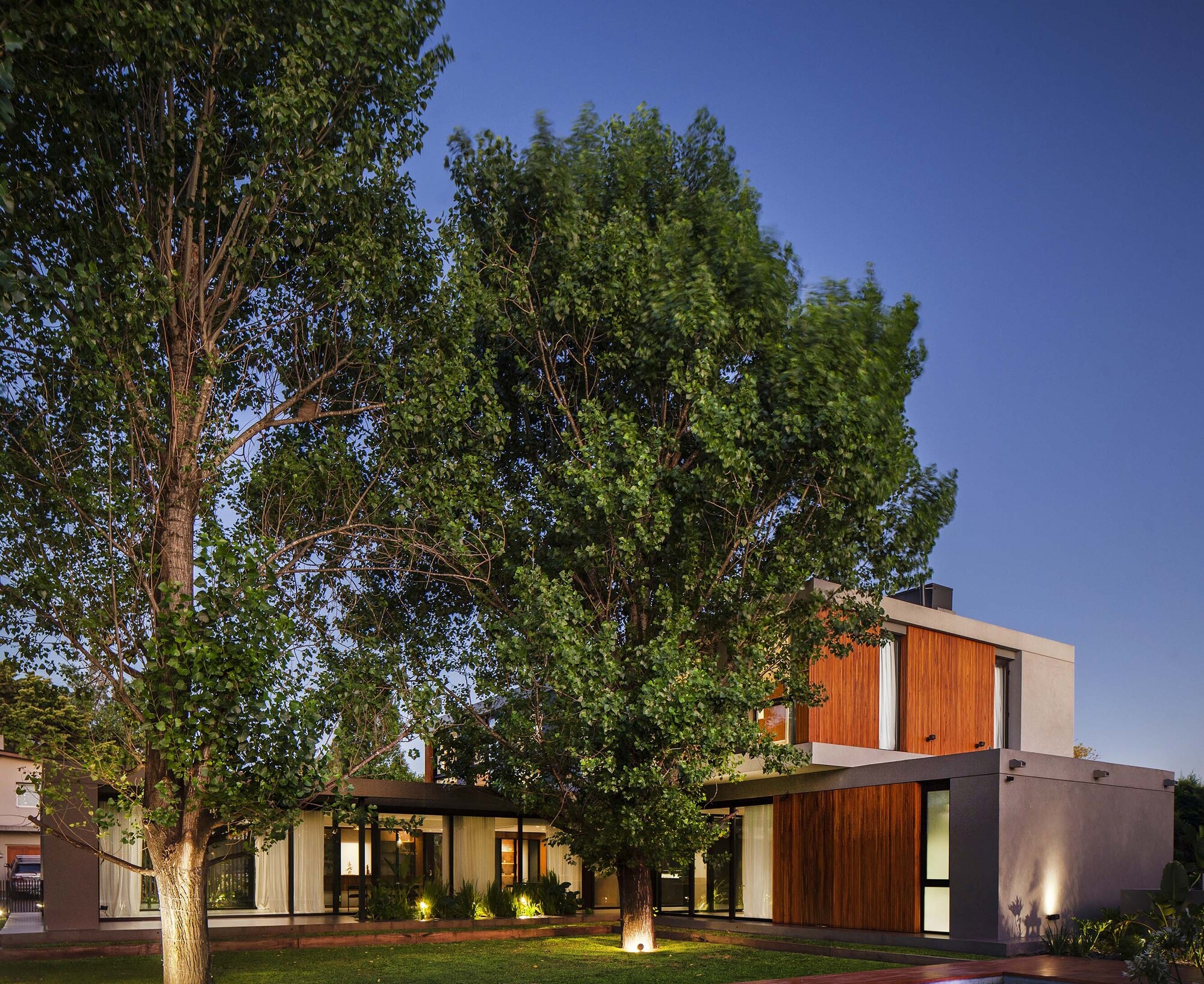
Use trees and plants along your path and use them as a guide, lighting them from below to highlight your pathway while accentuating the natural shape of the flora and fauna in your backyard. Uplighting deciduous trees from the base creates a sculptural effect. 'Tree lighting from below creates interesting shadows and texture,' says landscape designer Paul Moon.
Alternatively, you can also use the foliage to your advantage and embed the lighting within the leaves to hide unsightly wires that can be seen in the naked light of day. 'It’s important to keep in mind the light, temperature and space available but also considering things like whether you want to highlight soft or sharp leaves, vibrant or subtle color, can really help establish the mood and bring a sense of cohesion and continuity,' adds Lee Turner, director at Turner Road Architecture.







